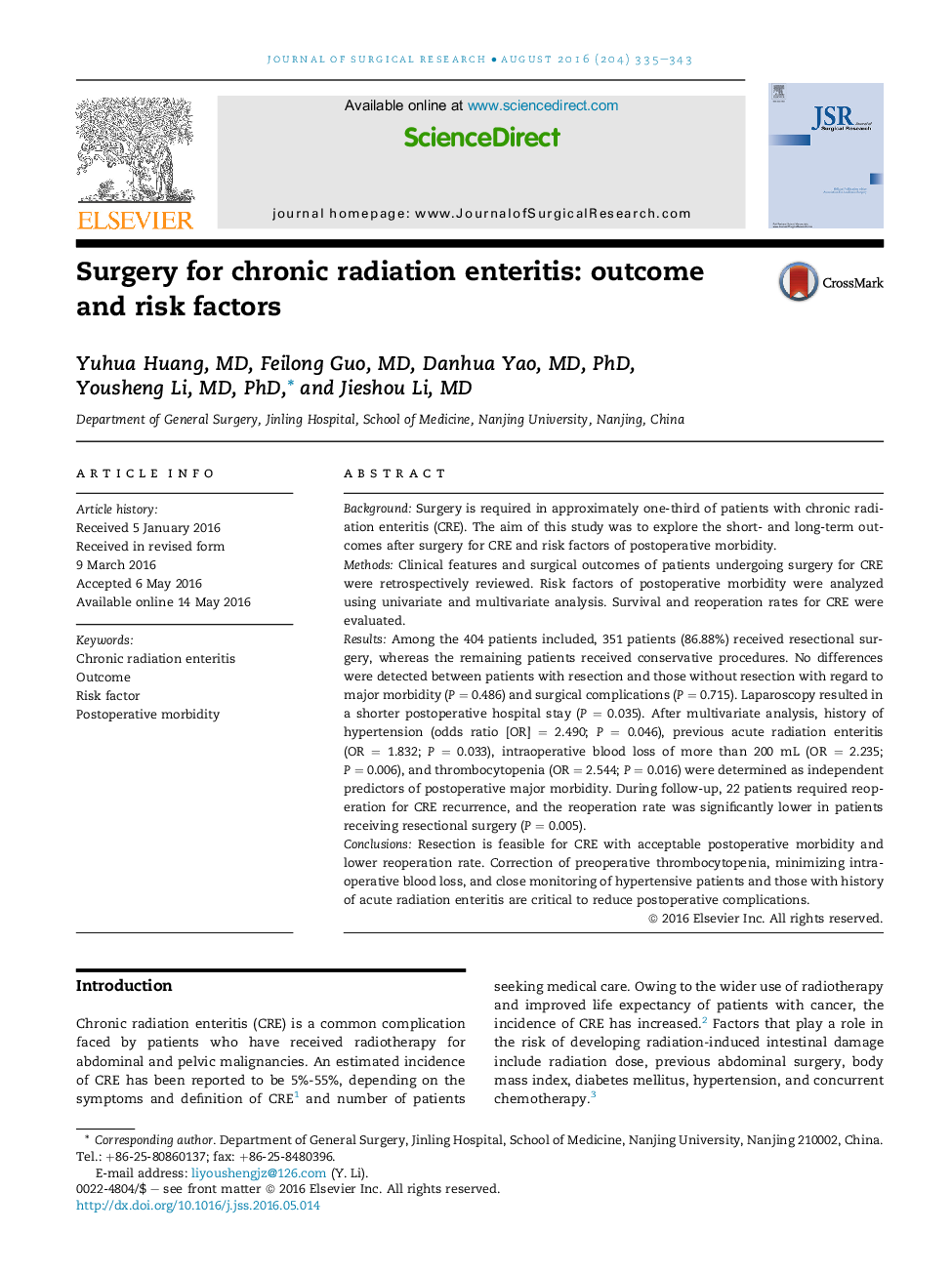| Article ID | Journal | Published Year | Pages | File Type |
|---|---|---|---|---|
| 4299113 | Journal of Surgical Research | 2016 | 9 Pages |
BackgroundSurgery is required in approximately one-third of patients with chronic radiation enteritis (CRE). The aim of this study was to explore the short- and long-term outcomes after surgery for CRE and risk factors of postoperative morbidity.MethodsClinical features and surgical outcomes of patients undergoing surgery for CRE were retrospectively reviewed. Risk factors of postoperative morbidity were analyzed using univariate and multivariate analysis. Survival and reoperation rates for CRE were evaluated.ResultsAmong the 404 patients included, 351 patients (86.88%) received resectional surgery, whereas the remaining patients received conservative procedures. No differences were detected between patients with resection and those without resection with regard to major morbidity (P = 0.486) and surgical complications (P = 0.715). Laparoscopy resulted in a shorter postoperative hospital stay (P = 0.035). After multivariate analysis, history of hypertension (odds ratio [OR] = 2.490; P = 0.046), previous acute radiation enteritis (OR = 1.832; P = 0.033), intraoperative blood loss of more than 200 mL (OR = 2.235; P = 0.006), and thrombocytopenia (OR = 2.544; P = 0.016) were determined as independent predictors of postoperative major morbidity. During follow-up, 22 patients required reoperation for CRE recurrence, and the reoperation rate was significantly lower in patients receiving resectional surgery (P = 0.005).ConclusionsResection is feasible for CRE with acceptable postoperative morbidity and lower reoperation rate. Correction of preoperative thrombocytopenia, minimizing intraoperative blood loss, and close monitoring of hypertensive patients and those with history of acute radiation enteritis are critical to reduce postoperative complications.
